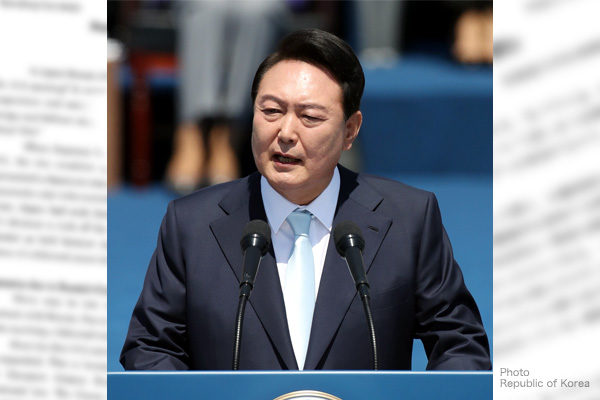On April 10, a National Assembly election took place in South Korea. The National Assembly is a unicameral legislature with 300 seats. The term of office for lawmakers is four years, with no dissolution allowed. A single election thus determines the balance of power in the legislature for the next four years. In the latest election, the ruling People Power Party won only 108 seats, suffering a crushing defeat. The largest opposition party, the Democratic Party of Korea, gained 175 seats. The Rebuilding Korea Party, which was formed in March by former Justice Minister Cho Kuk, won 12 seats, with five gained by other opposition parties. The opposition camp thus got a total of 192 seats.
President Yoon judged by the people
With a two-thirds majority, or 200 seats, the opposition parties can (1) impeach the president, (2) initiate constitutional amendments, and (3) override a presidential veto. Conservatives had feared that the opposition camp might win 200 or more seats, calling the possibility as opening the “gates of hell.” But the gates did not open.
Nevertheless, the Democratic Party of Korea and the Rebuilding Korea Party together have 186 seats, more than three-fifths of the total. If 180 or more lawmakers vote in favor of designating a bill for a fast-track procedure, the bill may be presented to the full National Assembly automatically in 330 days without passing a committee. If the left-wing opposition parties join hands, therefore, they may pass any bill to override objections from the ruling party.
The biggest factor behind the ruling party’s defeat is public antipathy toward President Yoon Suk Yeol and his wife, Kim Keon Hee. The election results represented voters’ judgement on the Yoon government, rather than the opposition camp’s victory. That’s why Cho’s new party generated a buzz by harshly criticizing the president and his wife. The conservative newspaper Chosun Ilbo said, “An argument for judging the government shook election campaigns not because of the ruling party’s policy mistakes or misconduct. It is no exaggeration to say that it was because of President Yoon’s arrogance and self-righteous leadership”
Opposition parties took up five major scandals to criticize the president and his wife. President Yoon was suspected as (1) being reluctant to investigate the Itaewon crowd accident and (2) having ordered the defense minister to cover up a division commander’s responsibility for the line-of-duty death of a Marine soldier. The president’s wife is alleged to have (1) changed the route of the Seoul-Yangpyeong expressway in favor of her relatives, (2) failed to report her acceptance of an expensive branded bag as a gift, and (3) been involved in a stock price manipulation. Furthermore, medical doctors strongly reacted to Yoon’s aggressive policy of increasing the number of medical students by 60%, with many intern doctors at large hospitals submitting their resignation letters. This turmoil dragged down the ruling party.
Yoon may accept special prosecutors
The opposition camp has vowed to submit a bill to appoint special prosecutors to investigate the five scandals as soon as the National Assembly convenes. A bill appointing a special prosecutor for the wife’s alleged stock price manipulation had already passed the National Assembly but was vetoed by the president. At that time, some in the ruling party called on the president to accept the appointment after the election. Even if Yoon vetoes the bill again, the bill may be enacted with eight or more ruling party lawmakers joining the opposition camp to secure a two-thirds majority vote.
To prevent him from becoming a lame duck, Yoon must make concessions such as the announcement of his acceptance of special prosecutors to prove innocence. I will wait and see if Yoon, who does not listen to others, can make such a decision.
Tsutomu Nishioka is a senior fellow and a Planning Committee member at the Japan Institute for National Fundamentals and a visiting professor at Reitaku University. He covers South and North Koreas.


